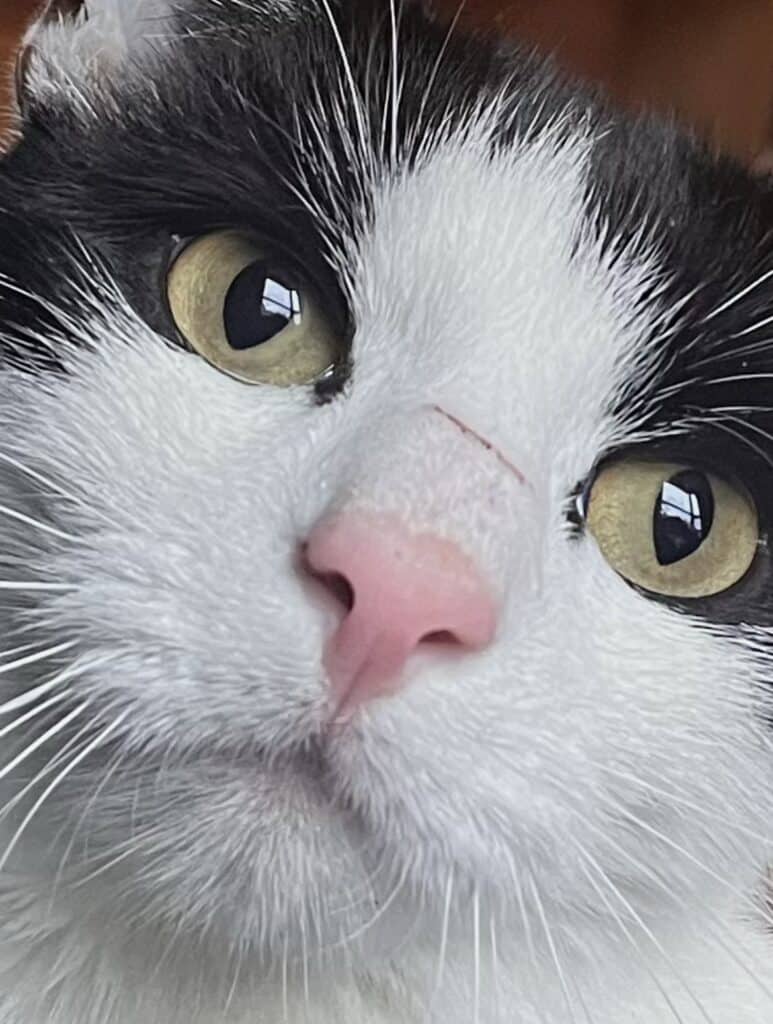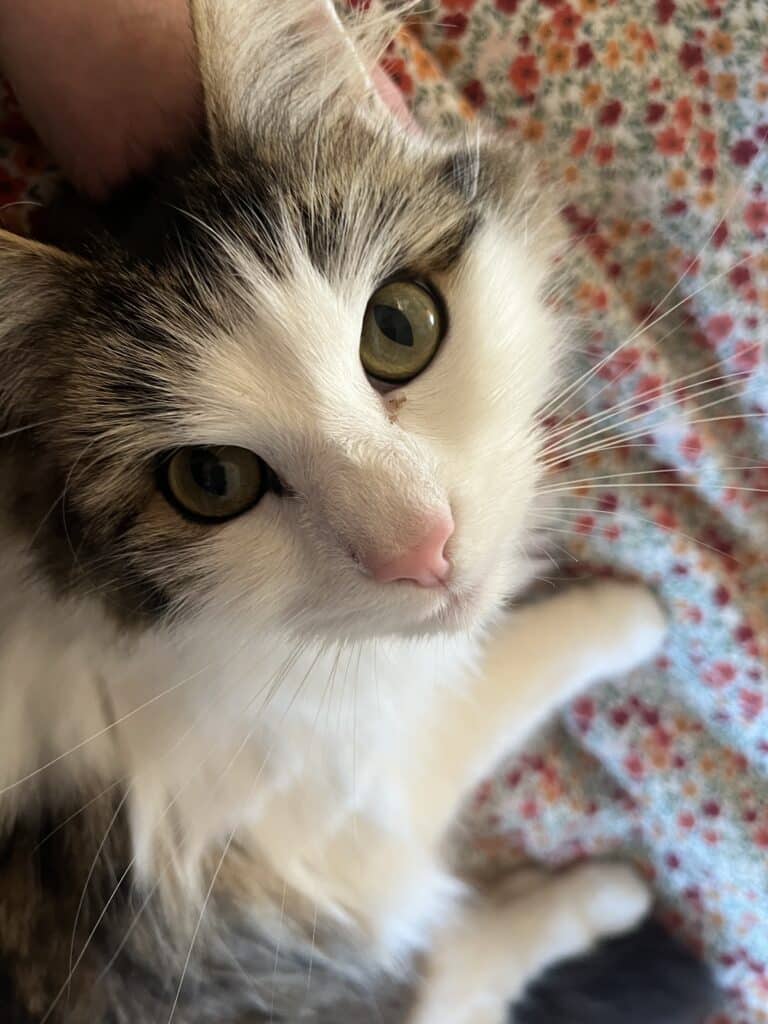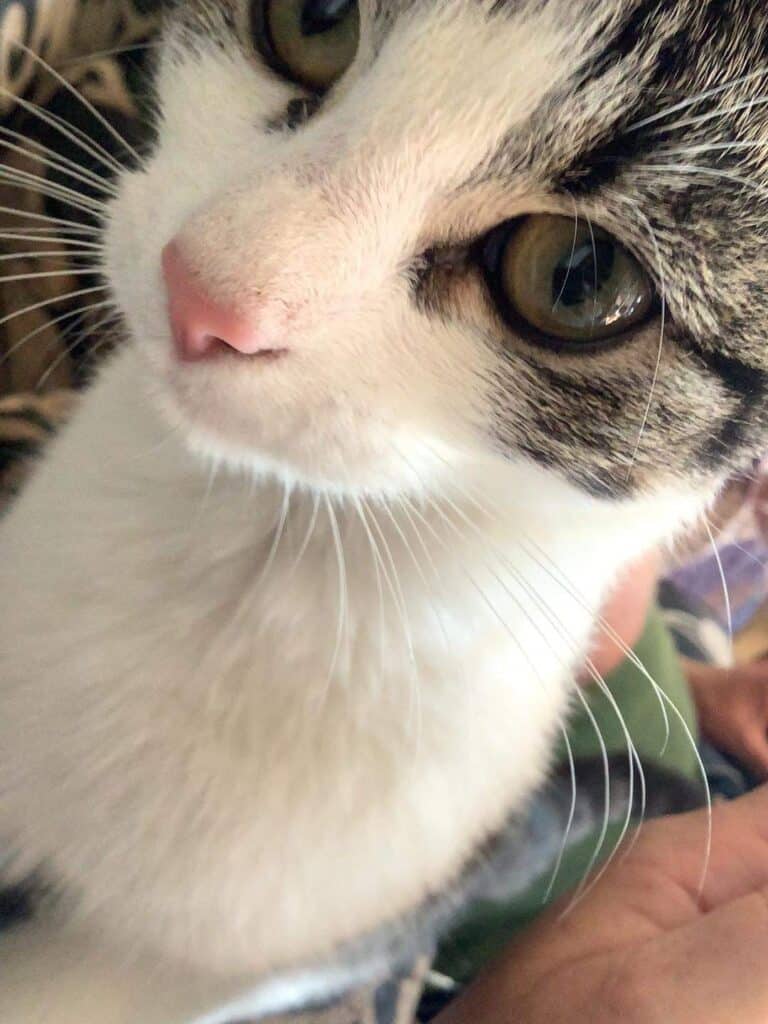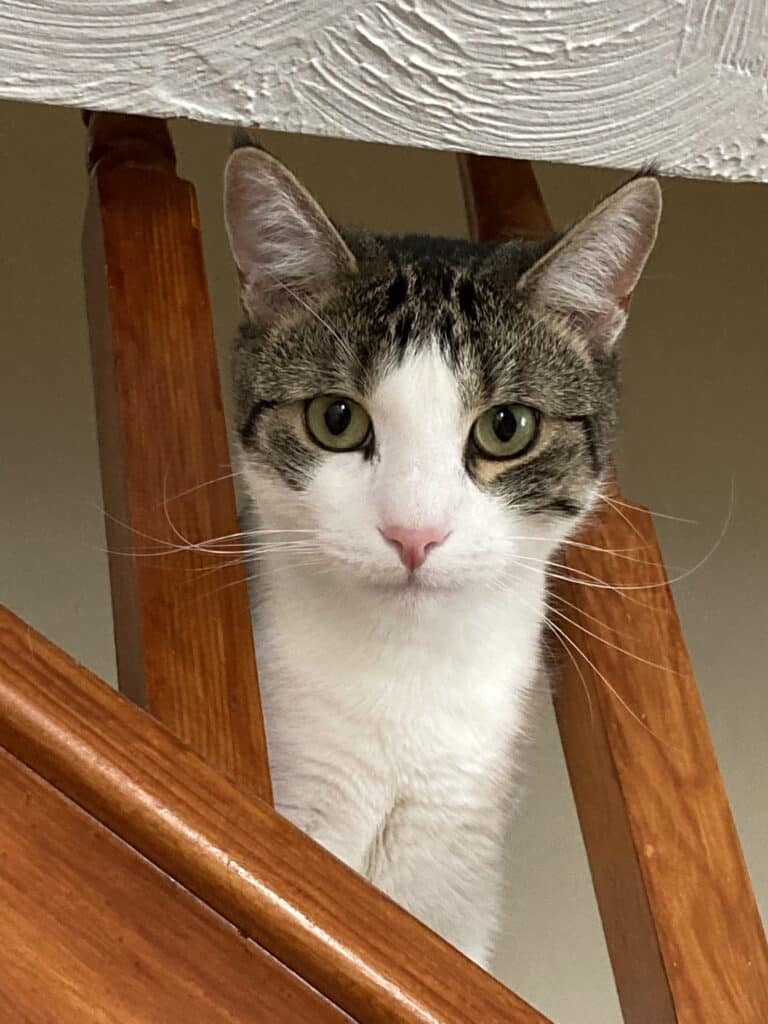Cats are just the most extraordinary animals. Just being around them can bring blood pressure down and lead to less stress (unless one has a serious allergy).
There is some evidence to suggest that cat owners may experience certain health benefits that could contribute to a longer life, although it’s essential to note that many factors influence a person’s overall lifespan, and owning a cat is just one of them. Here are some potential ways in which cat ownership might positively impact health:
- Reduced Stress: Interacting with cats, petting them, or simply watching them can promote relaxation and reduce stress levels. Lowering stress can have various positive effects on overall health.
- Lower Blood Pressure: Studies have shown that petting a cat can lead to a decrease in blood pressure. This effect can be particularly beneficial for people with hypertension.
- Emotional Support: Cats can provide companionship and emotional support, which can enhance mental well-being. Reduced feelings of loneliness and depression may indirectly contribute to better health.
- Increased Physical Activity: Taking care of a cat, including playing with them and cleaning their litter box, can encourage physical activity. Staying active is associated with better health outcomes.
- Improved Mood: The presence of a cat can boost mood and increase the release of feel-good hormones like serotonin and dopamine.
- Social Interaction: Cat ownership can facilitate social interaction, as cat owners often share stories and experiences with fellow cat enthusiasts. Social connections are linked to better health and longevity.
However, it’s important to remember that the health benefits of cat ownership can vary from person to person, and not all cat owners will necessarily experience these advantages. Additionally, cat ownership also comes with responsibilities, including providing proper care, nutrition, and regular veterinary visits, which can contribute to a healthier lifestyle.
Ultimately, while owning a cat can have positive effects on well-being and potentially contribute to a longer life, it’s just one of many factors that influence an individual’s overall health and longevity. Lifestyle choices, genetics, access to healthcare, and other variables also play significant roles.



The top 30 most frequently asked questions and answers:
- What is the average lifespan of a cat?
- The average lifespan of a cat is around 15 years, although many cats can live into their twenties with proper care.
- How do I choose the right cat breed for me?
- Consider factors like personality, activity level, grooming needs, and size. Research different breeds and visit shelters to find the right fit.
- What should I feed my cat, and how much?
- Cats need a balanced diet of high-quality cat food. Consult with your veterinarian for specific dietary recommendations based on your cat’s age and health.
- How often should I feed my cat?
- Most cats are fed twice a day, but the frequency can vary based on your cat’s age and dietary needs.
- What are the most common health issues in cats?
- Common health issues include dental problems, urinary tract issues, obesity, and parasites.
- How can I tell if my cat is sick?
- Look for signs like changes in appetite, behaviour, litter box habits, or physical symptoms. If you suspect illness, consult your veterinarian.
- What vaccinations does my cat need?
- Core vaccinations include rabies and distemper. Consult your vet for a vaccination schedule based on your cat’s lifestyle.
- How do I litter train my cat?
- Most kittens learn from their mother. Provide a clean litter box and encourage your cat to use it consistently.
- How can I stop my cat from scratching furniture?
- Use scratching posts, provide alternatives, and consider soft nail caps or deterrents.
- Do cats need to be groomed, and how often?
- Cats are generally good self-groomers, but long-haired breeds may need regular brushing. Groom as needed based on your cat’s coat.
- What are the signs of a pregnant cat?
- Signs include a swollen abdomen, changes in behavior, and increased appetite. Consult a vet for confirmation and care.
- How do I introduce a new cat to my existing pets?
- Gradually introduce them in a controlled environment, allowing them to get used to each other’s scents and presence.
- What should I do if my cat goes missing?
- Immediately search your neighborhood, contact local shelters, and post online and offline flyers with a recent photo.
- Can cats be trained like dogs?
- Yes, cats can be trained using positive reinforcement techniques, but they have different motivations than dogs.
- How do I prevent my cat from spraying or marking territory?
- Neuter or spay your cat, and provide plenty of vertical space, scratchers, and a clean litter box.
- What is the best type of cat litter?
- Choose a litter that your cat prefers, whether clumping, non-clumping, scented, or unscented. Maintain a clean box.
- Why does my cat knead me with its paws?
- Kneading is a comforting behaviour from kittenhood and often indicates contentment.
- Do cats have a preferred sleeping position?
- Cats can sleep in various positions, but curled up or stretched out are common choices.
- How can I tell if my cat is in heat?
- Signs include increased vocalisation, restlessness, and soliciting attention. Spaying can prevent heat cycles.
- Why do cats purr?
- Cats purr for various reasons, including contentment, relaxation, and sometimes when they’re in pain or stressed.
- What are the most common cat behavior problems and how can I address them?
- Common behaviour issues include litter box problems, aggression, and excessive scratching. Address them through positive reinforcement training and consulting a behaviorist if needed.
- Can cats see in the dark?
- Cats have excellent night vision, but they don’t see in complete darkness. They rely on low light levels.
- How do I trim my cat’s claws?
- Use cat-specific nail clippers, be gentle, and only trim the sharp tips to avoid cutting the quick. If unsure, consult a vet or groomer.
- What is the best way to play with my cat?
- Engage in interactive play with toys like feather wands or laser pointers to stimulate your cat’s natural hunting instincts.
- Do cats have a sense of time?
- Cats don’t perceive time in the same way humans do, but they establish routines and can anticipate regular events.
- Can cats be allergic to certain foods?
- Yes, cats can have food allergies. Common allergens include chicken, fish, and grains. Consult your vet for allergy testing and dietary recommendations.
- How do I create a safe outdoor space for my cat?
- Consider options like cat enclosures (catios), leash training, or supervised outdoor time to keep your cat safe while enjoying the outdoors.
- What are the differences between male and female cats in terms of behaviour?
- Male cats may be more territorial and prone to marking, while female cats can be more independent. However, individual personalities vary widely.
- Can cats get along with other animals, like dogs or rabbits?
- Cats can coexist with other animals, but introductions should be gradual, and their compatibility depends on the individual animals and their socialization.
- How can I help my cat adjust to a new home?
- Provide a quiet space, maintain their routine, and introduce them to their new environment gradually. Offer plenty of love and attention to help them feel secure.






If you would like your interests… published, submit via https://dorseteye.com/submit-a-report/
Join us in helping to bring reality and decency back by SUBSCRIBING to our Youtube channel: https://www.youtube.com/channel/UCQ1Ll1ylCg8U19AhNl-NoTg and SUPPORTING US where you can: Award Winning Independent Citizen Media Needs Your Help. PLEASE SUPPORT US FOR JUST £2 A MONTH https://dorseteye.com/donate/







